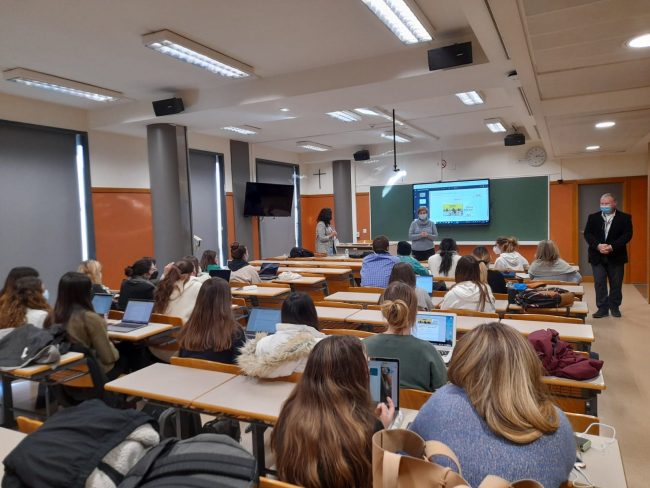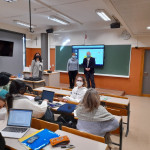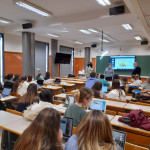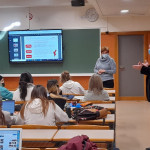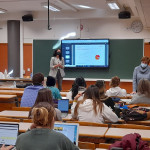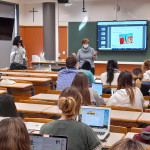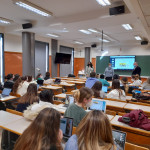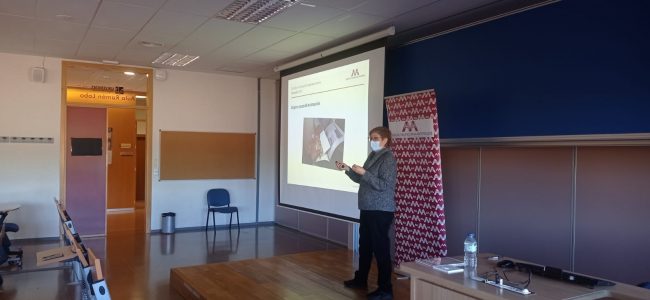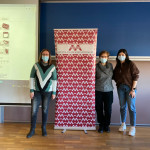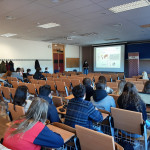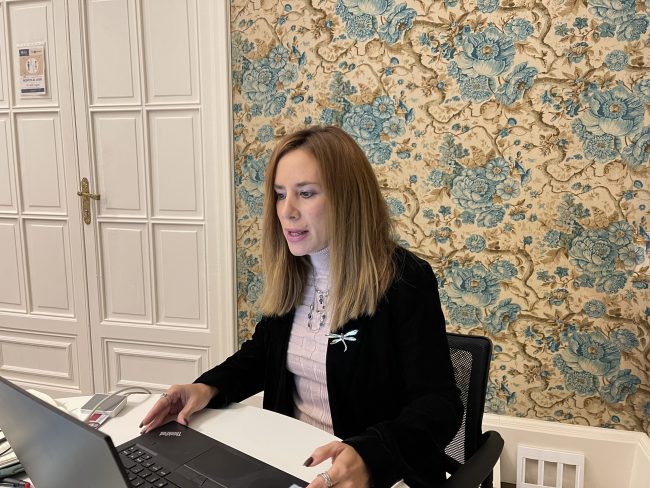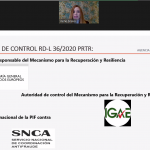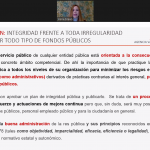Debate on corruption with journalism students from the Cardenal Herrera CEU University
#TrainingAVAF
In the first quarter of this academic year, several docufòrum have been held at the Cardenal Herrera CEU University, in collaboration with the Valencian Anti-Fraud Agency (AVAF). On this occasion, the activity has been carried out with second-year students of the Journalism Degree.
The AVAF develops training activities to offer knowledge and civic awareness, especially to future professionals, and to promote a culture of prevention and fight against all conduct that encourages corruption.
On Tuesday, December 14, a new activity took place at the Faculty of Political Sciences, Ethics and Sociology of the Cardenal Herrera CEU University, with second-year students of the Degree in Journalism, with the attendance of 23 students and the participation of the professor of the subject of Ethics of Communication.
After viewing the documentary “Corruption: Harmful Organism”, the students lead the training experience with their questions, focused on the origin and causes of corruption, its effect and costs, the perception of corruption in our society and respect to other neighboring countries, what to do in cases of corruption. In the same debate, he takes the opportunity to talk about ethics and integrity, as well as prevention and civic training. And the functions and work of the Valencian Anti-Fraud Agency, especially the importance of the media as a factor that modulates the perception of corruption.
The activity had a part dedicated to the activity of the AVAF, and another specific to journalism and corruption, with the participation of the Head of the Institutional Relations and Communication Cabinet Unit of the Agency, mobilizing the interest of the students of the Ethics subject of the comunication. The debate with the students allows students to reflect on ethical limits and micro-corruption, which every professional encounters throughout their lives.
These activities are organized in collaboration with the Cardenal Herrera CEU University of Alfara del Patriarca, which we thank for its interest and willingness to help create a culture of public integrity and rejection of fraud and corruption.
If you are a university, Secondary or Baccalaureate teacher and you are interested in the training activity “Docufòrum: Corruption, harmful organism” being carried out in your subject, do not hesitate to contact the Training Service of the Valencian Anti-Fraud Agency through from formacion@antifraucv.es.


